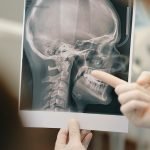Exercise is a key to combat obesity-induced cognitive decline
Obesity, a prevalent health concern worldwide, is not only a major risk factor for cardiovascular and metabolic diseases but also for neurodegenerative conditions, including...
Scientists find cause of irritability, agitation and anxiety in Alzheimer’s
Researchers at the University of Pittsburgh School of Medicine have made a significant breakthrough in understanding Alzheimer's disease, as published in JAMA Network Open.
Their...
Brain inflammation is linked to Alzheimer’s disease, study finds
Recent research from Brigham and Women's Hospital has shed new light on the progression of Alzheimer's disease (AD), focusing on the role of immune-regulating...
Healthy lifestyle changes can prevent Alzheimer’s, study finds
A groundbreaking study by UC San Francisco and elsewhere has found that tailored health and lifestyle interventions can significantly delay or prevent memory loss...
How OCD treatment reshapes the brain
A new study reveals that the first-line therapy for obsessive-compulsive disorder (OCD), known as exposure and response prevention (EX/RP), has a significant impact on...
This non-invasive test can detect Alzheimer’s disease early
Researchers from Caltech and the Huntington Medical Research Institutes have developed a promising noninvasive test to detect early Alzheimer's risk, offering new hope in...
This attention test can detect Alzheimer’s early
A pioneering study led by Caltech and Huntington Medical Research Institutes offers new insights into early Alzheimer's detection through a unique behavioral test, focusing...
Cholesterol drives plaque formation in Alzheimer’s disease
Alzheimer's disease is a debilitating condition that affects millions of people worldwide.
While it's known that sticky protein buildup in the brain, called amyloid beta...
Life coach may help delay or prevent Alzheimer’s disease, study finds
Alzheimer's disease remains a growing concern, especially among older adults.
A new study led by researchers from UC San Francisco and Kaiser Permanente Washington has...
Scientists find cause of mental symptoms in Alzheimer’s disease
Researchers from the University of Pittsburgh School of Medicine have made a significant discovery regarding Alzheimer's disease.
They found that common neuropsychiatric symptoms, such as...










